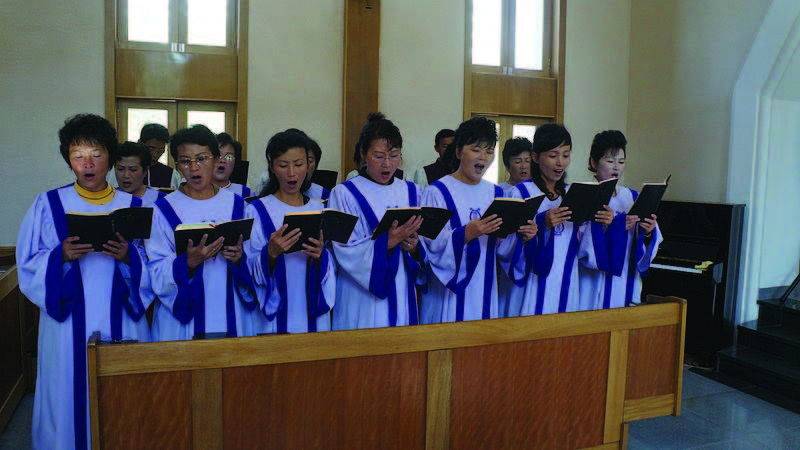
The ways that Korean churches have become Americanized and experienced divisions between the immigrant and more assimilated second generations are giving way to a more conflicted relationship between these churches and American culture, according to research presented at the recent virtual meeting of the American Academy of Religion. A paper by Eunil David Cho of Brite Divinity School on the growth of Korean language schools in American churches, often attended by second-and third-generation members, complicates the popular idea that younger Korean Americans feel alienated from and seek alternatives to their ethnic parents’ and grandparents’ faith. There are now over 1,000 Korean language schools in the U.S., and 80 percent of them are run by churches and church workers, though they are open to the public.
Often younger members will not only attend these schools but also attend Korean church services with their parents and grandparents. In research on a Korean Presbyterian church in Atlanta, Cho observed younger members say that these schools helped them understand their parents and community and found that they often saw such participation as a rite of passage that gave them a sense of belonging. “Learning the language doesn’t shape Christian identity, but the church is encouraging people to embrace identity and language. The church continues to be a refuge and a haven. It will not be predominantly English but bilingual. The immigrant church allows [members] to be both Korean and American,” Cho said. All this means is that the “deethnicizing. of the Korean church is highly unlikely,” a reality that also challenges views of religion as assisting in the assimilation process.
Another ethnographic study of a Korean congregation by Seokweon Jeon of Harvard Divinity School suggests that newer Korean immigrants are different from the older ones in their lack of attachment to the U.S. as a permanent haven and center for their Christian faith. Jeon studied a congregation in the Boston area that has attracted a large share of recent young Korean immigrants. He found that the young professionals who attended this large congregation had few plans to remain in the U.S., instead of viewing their stay in the country as a “rite of passage” for becoming a prominent leader in Korea. For such members, “The U.S. is not the land of promise; it’s more of a wilderness and God’s training ground,” he said. Members saw the country as immoral and believed in the importance of “standing against Sodom and Gomorrah.” The temporary nature of this new wave of Korean immigration is shown by the high and rising numbers of Koreans who are planning to return to their homeland—from 50 percent in 2012 to about 80 percent since 2018. The congregation Jeon studied functioned more as a center for forming social networks and socialization; conversation on spiritual topics was not common among members. Organized into small groups, the church was highly segmented by class and was often seen as elitist and exclusive to Korean Americans who had visited, Jeon added.

Chilgol Church (Uri Tours [uritours.com ], CC BY-SA 2.0 https://creativecommons.org/licenses/by-sa/2.0, via Wikimedia Commons).